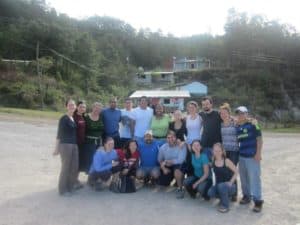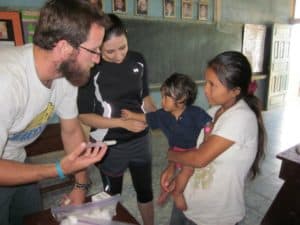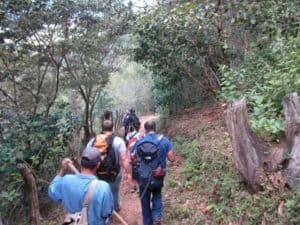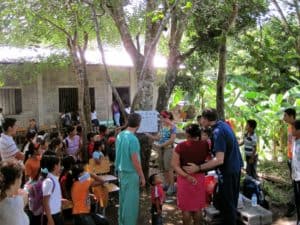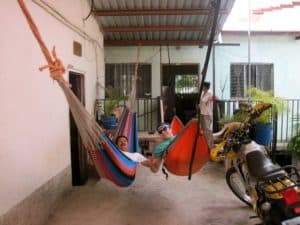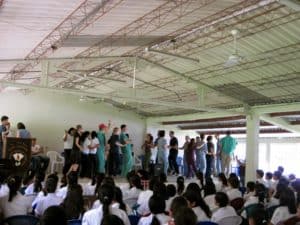Completing the first of their tri-annual trips to the frontera, the University of Wyoming left the snow and cold to come to their affiliate community of Agua Salada during the heat of the dry season. The brigade was comprised of 1 attending doctor, 2 residents, 1 nurse, a nurse practitioner student, an EMT, 7 nursing students, 2 engineers, an engineering student, and a social work student, all of whom added unique perspectives from every discipline. They spent their week hosting a clinic at the local Catholic church, educating students at local elementary schools about proper tooth brushing, hand washing, and sun protection, and teaching English to local students. They also did home visits for those patients who could not make it to the clinic and oversaw/ worked side by side the contractors on the new clinic. Excursions to local waterfalls, the Concepción market, and nightly games and reflections were also highlights of the trip. The clinic is well underway with the leech field done, the walls up, and the roof of one building complete. Hopefully, by the next brigade, the University will be camping on the clinic site rather than on the school grounds and classrooms of the local elementary school! The community of Agua Salada is excited about continuing the partnership with the University of Wyoming as the clinic progress moves forward!
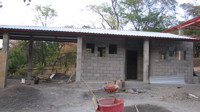
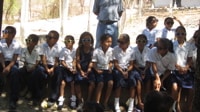
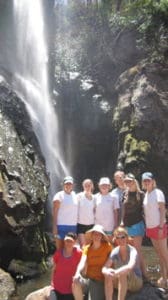
Some words from brigade members:
“I got so much more out of the trip than I had even hoped for.”
“Experience was outstanding. No complaints. The food, people, clinic, and building were all amazing.”
“Everything exceeded my expectations, I can’t wait to come back!”


